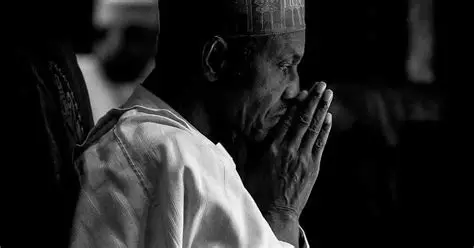Following the passing of former President Muhammadu Buhari, renewed public attention has turned to the extensive benefits allocated to former Nigerian Presidents, Vice Presidents, and their families under federal law — even after death.
The Nigerian government, guided by the Remuneration of Former Presidents and Heads of State (and Other Ancillary Matters) Act, provides a wide range of privileges to past leaders. These include monthly upkeep allowances, housing, transportation, medical care — including treatment abroad — security, staff, and vacation benefits.
Legal Provisions and Entitlements
According to the Act, a former President receives a monthly allowance of N350,000, while former Vice Presidents and Chiefs of General Staff are entitled to N250,000 per month. In the case of deceased leaders, the law mandates that their immediate families receive N1 million annually — paid quarterly — to cover the spouse’s upkeep and the children’s education up to university level. For families of deceased former Vice Presidents, the figure stands at N750,000 per annum.
These benefits are included in the national budget and are reviewed in line with adjustments to the remuneration of the incumbent President and Vice President.
Further entitlements for former Presidents include:
- Three government-funded vehicles replaced every four years
- Armed security personnel and a State Security Service officer for life
- A fully furnished five-bedroom house and office in a location of choice
- Free medical care locally and abroad for themselves and their families
- 30-day vacation annually within or outside Nigeria at government expense
- A personal staff complement, including a secretary and administrative officer
- A diplomatic passport for life and use of franked “POSTAGE PAID” mail
Former Vice Presidents enjoy similar privileges.
Public Backlash Over Excesses
However, these lavish post-service packages have sparked outrage among citizens who believe the cost is excessive, especially given Nigeria’s ongoing economic challenges and dilapidated public infrastructure.
A cross-section of Nigerians took to social media to express their disapproval:
- @ToheebAlim: “Despite the fact that they are self-sufficient… a priority misplaced.”
- @enyola: “Rubbish that needs to be expunged from the law.”
- @Isholanoah01: “Upon all the billions stolen, the constitution still gives them more!”
Critics argue that the benefits are unnecessary, particularly for wealthy ex-leaders. Many also point to the plight of widows of soldiers who died in service, asking why they do not enjoy similar state support.
Civil Society Condemns High Cost of Governance
Ene Obi, former Country Director of ActionAid Nigeria and a civil society advocate, described the situation as a reflection of Nigeria’s failure to prioritize the needs of ordinary citizens.
“There’s no justification for spending public funds on overseas healthcare for leaders when Nigerian hospitals are underfunded,” she said. “It shows the failure of successive governments to invest in healthcare and education.”
She further criticized the large delegation that accompanied Buhari’s remains from London, stating that such expenses contradict the former President’s well-known simplicity.
“Buhari would never have approved that kind of extravagant repatriation. He was a simple man,” Obi said. “This culture of spending millions on ceremonial events and endless perks for past leaders is unsustainable.”
Obi emphasized that while many Nigerians die daily due to lack of access to affordable medical care, political leaders continue to exploit a system designed to serve their personal interests.
Unanswered Questions
Despite inquiries, government officials have remained largely silent about the specifics of ongoing disbursements. A representative from the Office of the Accountant General of the Federation confirmed that both living and deceased Presidents’ families continue to receive benefits but declined to provide further details.
“All the past Presidents, whether alive or deceased, get benefits from the government. It’s basic,” said Segun Simmons Imohioson, spokesperson for the AGF. “There’s a department under the Secretary to the Government of the Federation that handles the affairs of former Heads of State.”
Yet, for many Nigerians, such explanations are not enough. As the nation reflects on the life and legacy of Buhari, there is a growing call for a serious review of laws that perpetuate political privilege at the expense of national development.
Calls for Reform
Activists and observers are demanding legislative reform to curb excessive benefits and redirect public funds toward critical sectors such as healthcare, education, and infrastructure. Previous attempts, such as a motion by Senator Dino Melaye to prohibit government-funded overseas medical treatment for political office holders, have failed to gain traction.
The public sentiment remains strong: Nigeria must move beyond a political culture of entitlement if it hopes to achieve real progress.

Comments